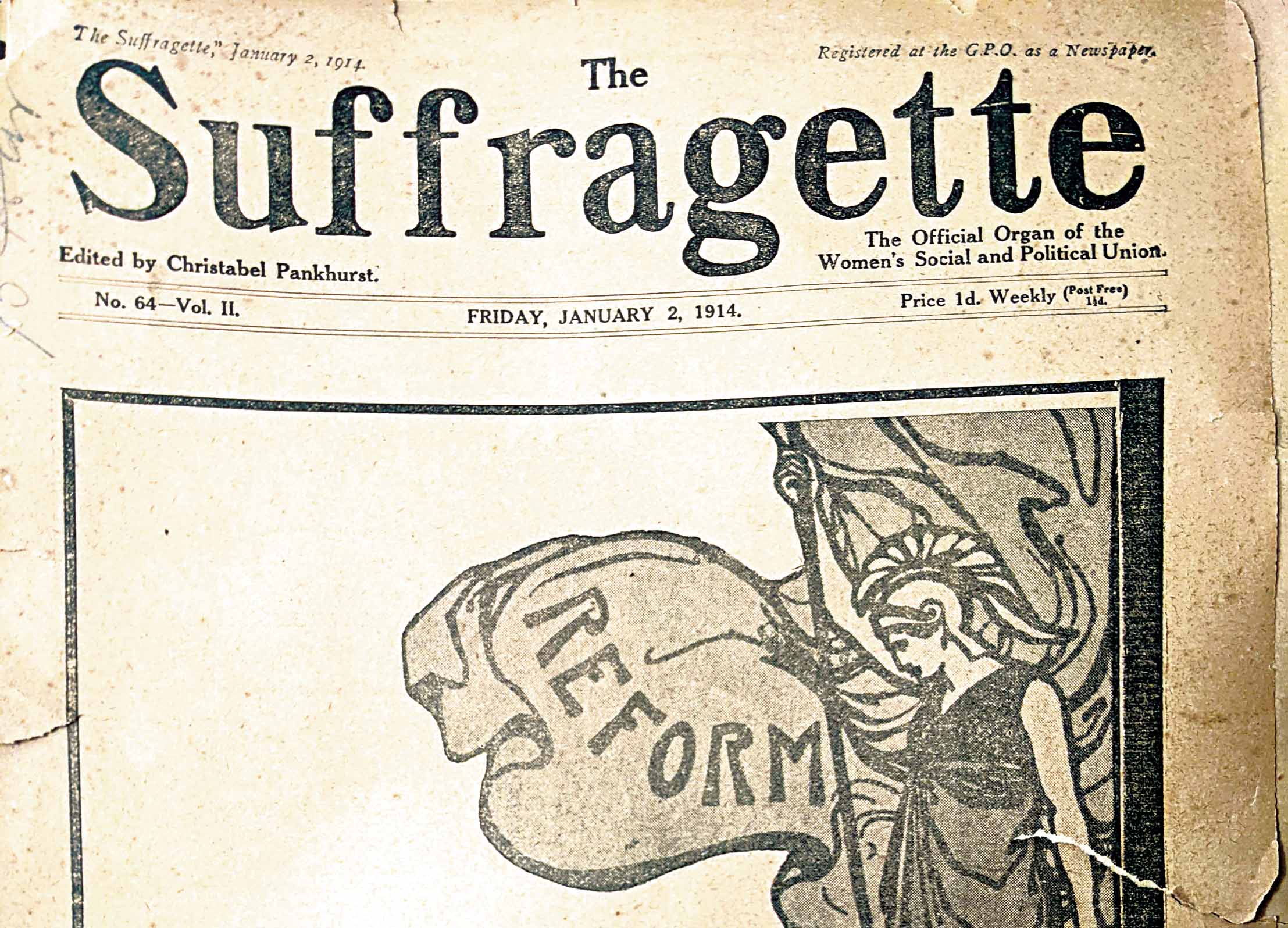John Gulliver: Fuelling protest
Whether or not you agree with their tactics, activists blocking roads and stopping traffic are on the right side of history
Thursday, 4th January — By John Gulliver

The Suffragette issue of January 2 1914
I BET Mrs Gulich was looking forward to the new year with great optimism after successfully hosting a festive fundraiser for the Hampstead Suffragette branch.
Sales of The Suffragette newspaper, at a stand close to their base in 174 Finchley Road, were booming – so much so that they put out an appeal for more sellers to come and help out.
I discovered this after coming across a decaying copy of The Suffragette over Christmas, printed 110 years ago this week in January 1914.
The official organ of the Women’s Social and Political Union was at that time edited by Christabel Pankhurst and published at Lincoln’s Inn Fields, Holborn.
It leads with a bold front page calling for reform alongside a quote from Giuseppe Garibaldi: “I offer insult and abuse and pain and loneliness and loss of friends, and hatred and anger of men. Let him (or her) who takes this cause in his heart and not with his lips only, follow me.”
The mid-19th century Italian revolutionary Garibaldi gave the rousing speech to a crowd of volunteer forces that were facing certain defeat in a bloody battle against armies in Rome.
And The Suffragette documents dozens of examples of women walking the walk as well as talking the talk.
The “sacrifice” of Emily Wilding Davison, at the Derby Day horse race, is listed in a three-page year-gone-by round-up of “The Militant Movement in 1913”.
“Throughout her career as a Suffragist, Miss Davison has been one of the bravest and most devoted in the militant army,” it notes.
There are news briefs about women being sent to Holloway Prison, examples of “resisting torture”, hunger strikes and “forcible feeding”.
There was a page listing the radical protests over Christmas, under the banner “No Peace for the Wicked”, and I read about a lord’s “yacht destroyed by fire” that had been “attributed to Suffragettes”.
Windows were smashed in Leeds, gunpowder poured into a letter box in Lewisham and there are reports of several “speakers” disrupting dinners in fancy restaurants and theatres in the West End.
One cheeky Suffragist even managed to hand a copy of the radical paper directly to the Queen in High Street Kensington.
The paper is supported with many advertising from local businesses that were clearly not put off by the radical content, including the old John Barnes store, now Waitrose, alongside others from major West End department stores, like Debenhams.
The paper’s editorial states: “Will women get the vote in 1914? That depends upon whether they can succeed in creating a situation so difficult that the Government in self-defence must escape from it by giving the women the vote.
“The one thing certain is that persuasion and peaceful appeal will fail to secure the vote. If women do not get the vote in 1914, the reason for it will be that not enough women are militant and that their militancy has not been great enough.”
Sound familiar?
The Suffragette movement is often compared to the current climate change activism we see today.
Like some of the campaigners for Just Stop Oil and Extinction Rebellion, the Suffragettes believed so much in their cause that they were willing to go to prison – and some – even risk death to force change.
After a mild year by comparison, XR says it will be “escalating actions” this year after the government, corporations and “Big Oil” have failed to make the changes needed to secure a “liveable planet for all”.
More than 700 Just Stop Oil protesters were arrested in November alone for non-violent protests outlawed under the Public Order Act.
Whether or not you agree with their tactics, activists blocking roads and stopping traffic are on the right side of history. In 100 years’ time they will be seen as the real heroes, the Mrs Gulich’s of our day.